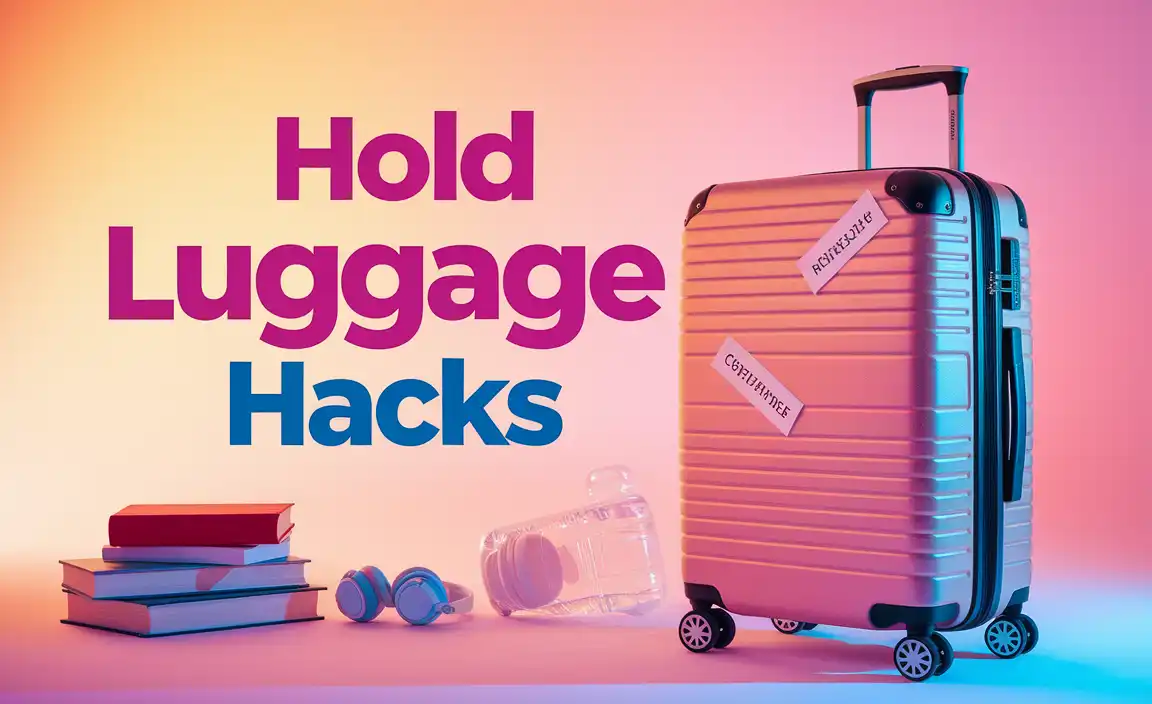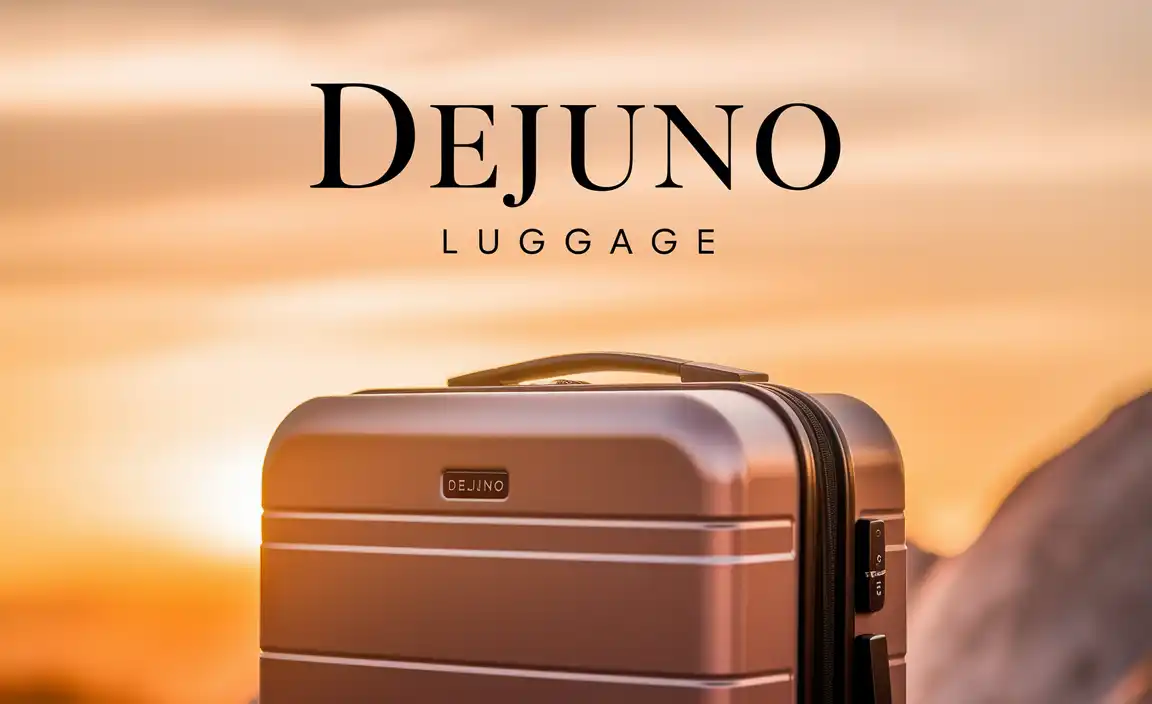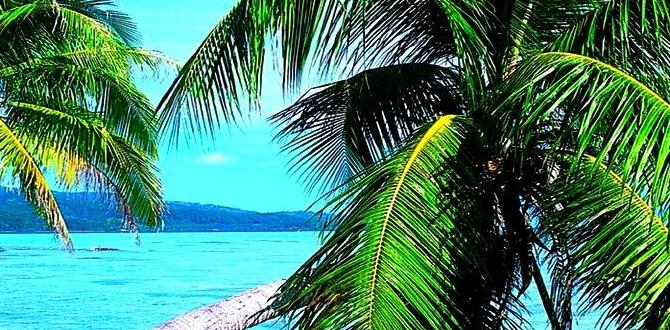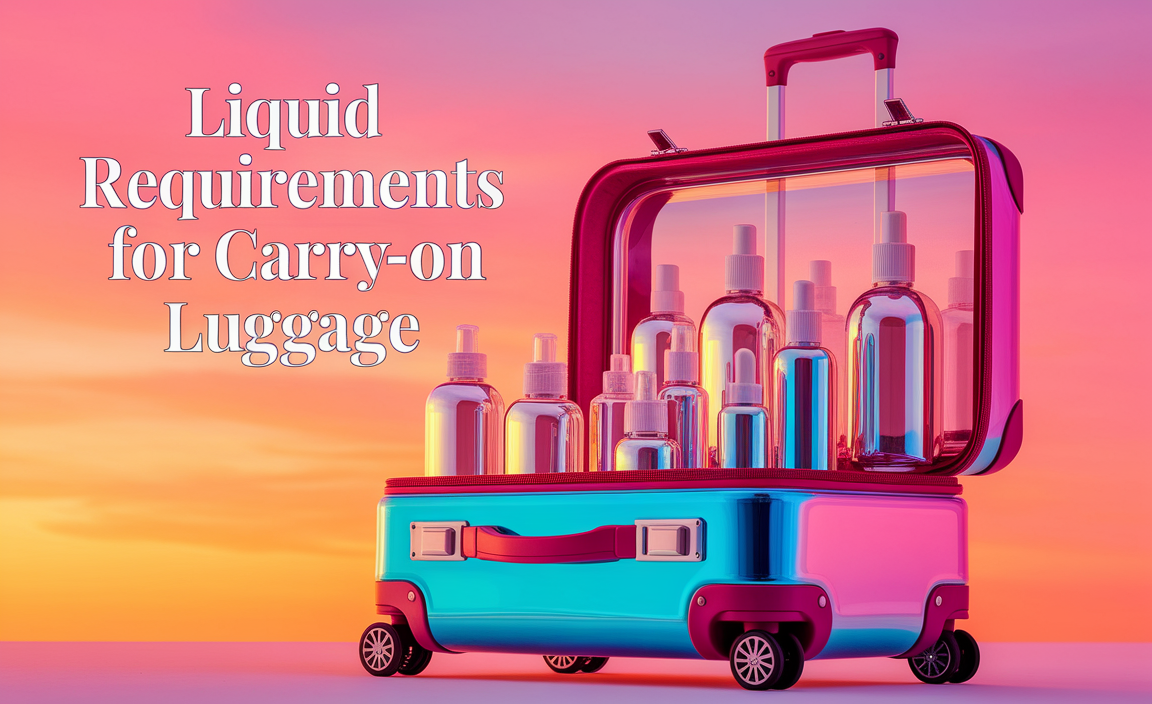Algeria first-timers guide: essential tips for a memorable trip! Prepare for an unforgettable adventure with practical advice on everything from visas and packing to cultural etiquette and must-see sights.
Dreaming of visiting Algeria but unsure where to start? Planning a trip to a new country can feel a little overwhelming, especially one as vast and culturally rich as Algeria. You might wonder about visas, what to pack, or even how to navigate daily life. Don’t worry!
This guide is designed specifically for first-time visitors. We’ll break down all the essential information into easy-to-understand steps, ensuring your journey is smooth, comfortable, and exciting. Get ready to discover the magic of Algeria with confidence!
Welcome to Algeria: What You Need to Know
Algeria, the largest country in Africa, is a land of stunning contrasts. From the azure waters of the Mediterranean coast to the vast, awe-inspiring Sahara Desert, it offers a diverse range of experiences. For first-time visitors, understanding a few key aspects will greatly enhance your trip. This guide focuses on providing practical, actionable advice to make your journey as enjoyable and stress-free as possible.
Visas and Entry Requirements
Visa regulations can change, so it’s crucial to get the most up-to-date information directly from official sources. Generally, most nationalities will need a visa to enter Algeria.
Application Process: The visa application is typically done through the Algerian embassy or consulate in your home country or country of residence. It’s a good idea to start this process well in advance of your planned travel dates, as it can take several weeks.
Required Documents: You’ll usually need a valid passport (with at least six months of validity remaining), completed visa application forms, passport-sized photos, proof of accommodation, flight reservations, and sometimes a letter of invitation. If traveling for tourism, you might need a detailed itinerary.
COVID-19 Regulations: Always check the latest travel advisories and health-related entry requirements, which can include vaccination proofs or testing, before your departure. The official Algerian embassy websites in your country are the best resources for current information.
Best Time to Visit
Algeria experiences a Mediterranean climate along its coast and an extreme desert climate inland.
Spring (March-May): This is often considered the ideal time to visit. Temperatures are pleasant, averaging between 15°C and 25°C (59°F to 77°F). Wildflowers bloom, especially in the highlands, and the weather is perfect for exploring cities and historical sites.
Autumn (September-November): Similar to spring, this season offers mild temperatures and clear skies, making it excellent for sightseeing and desert excursions.
Summer (June-August): Coastal areas can be hot and humid, while the interior and Sahara can reach extreme temperatures exceeding 40°C (104°F). If visiting the desert in summer, plan for early mornings and late evenings for activities.
Winter (December-February): The coastal regions are mild but can be rainy. The Sahara is pleasant during the day but can get very cold at night. This is a good time for those seeking cooler weather or desert adventures without the intense heat.
Getting Around Algeria
Algeria is a large country, so understanding transportation options is key.
Air Travel: For long distances, domestic flights are the most efficient way to travel between major cities like Algiers, Oran, Constantine, and Tamanrasset. Airlines like Air Algérie operate these routes.
Trains: SNTF (Société Nationale des Transports Ferroviaires) operates a rail network connecting many major cities. Trains can be a comfortable option for daytime journeys and offer scenic views. Book tickets in advance if possible, especially during peak travel times.
Buses: An extensive network of inter-city buses serves most towns and cities. This is often the most budget-friendly option, though journeys can be longer and less comfortable than trains or flights. Companies like SAT and Trans-Express are common.
Taxis: In cities, “grands taxis” (shared taxis following fixed routes) and “petits taxis” (private taxis for hire) are readily available. Always agree on the fare before starting your journey, especially with petits taxis, or ensure the meter is used.
Car Rental: Renting a car is an option for more flexibility, particularly if you plan to explore off-the-beaten-path locations. However, driving can be challenging due to local driving habits and road conditions outside major routes. An International Driving Permit (IDP) is usually required alongside your national license.
Essential Packing List for Algeria
Packing smart can make all the difference in your comfort and readiness for Algeria’s varied climates and cultural norms.
Clothing
Consider layering and breathable fabrics. Modesty is appreciated, especially outside major tourist areas and at religious sites.
Lightweight, Breathable Clothes: Cotton and linen are excellent choices for daytime wear.
Long Sleeved Shirts and Trousers: Essential for sun protection in the desert and for respectfully visiting religious sites. For women, covering shoulders and knees is recommended.
A Light Jacket or Sweater: Evenings can be cooler, particularly in spring, autumn, and winter.
Comfortable Walking Shoes: You’ll be doing a lot of exploring on foot.
Comfortable Sandals or Flip-flops: For relaxing or for use in your accommodation.
Swimwear: If your accommodation has a pool or if you plan to visit coastal resorts.
Scarf or Shawl: Very versatile for women – useful for covering up when needed, for warmth, or as a fashion accessory.
Toiletries and Personal Care
It’s always wise to bring your preferred personal items, though most essentials are available in larger towns.
Sunscreen: High SPF is a must, especially for desert and coastal trips.
Insect Repellent: Particularly useful during dawn and dusk, especially if you are near water sources.
Hand Sanitizer: Always handy when on the go.
Basic First-Aid Kit: Including plasters, antiseptic wipes, pain relievers, and any personal medication.
Travel-sized Toiletries: Shampoo, conditioner, soap, toothbrush, and toothpaste.
Personal Hygiene Products: For peace of mind and guaranteed availability, consider bringing items like adult diapers or child diapers if needed. Travel-sized packs or discreet, absorbent options can provide comfort and confidence during long journeys, excursions, or simply when you’re out exploring without immediate access to facilities. Many modern options are discreet and highly effective, ensuring you can focus on enjoying Algeria without worry.
Other Essentials
Passport and Visa: Keep these in a secure place, but have photocopies stored separately.
Copies of Important Documents: Flight tickets, hotel bookings, ID.
Universal Power Adapter and Power Bank: Algeria uses Type C and Type F plugs. A power bank is invaluable for keeping your devices charged while out and about.
Camera and Extra Batteries/Memory Cards: You’ll want to capture the incredible scenery and culture.
Reusable Water Bottle: Stay hydrated and reduce plastic waste.
Small Backpack or Day Bag: For carrying essentials during daily excursions.
Sunglasses and a Hat: Essential for sun protection.
A Good Book or Entertainment: For downtime during travel or evenings.
Navigating Cultural Etiquette
Respecting local customs will enrich your experience and foster positive interactions. Algerians are known for their hospitality.
Dress Code
Modesty is Key: As mentioned, dress modestly. This means avoiding overly revealing clothing like short shorts, miniskirts, or low-cut tops, especially when visiting religious sites or rural areas. For women, covering shoulders and knees is considerate. Men should also aim for modest attire, avoiding sleeveless shirts outside of beach resorts.
Entering Mosques: Non-Muslims are generally not permitted inside mosques in Algeria, except for a few exceptions like the Great Mosque of Algiers, which has guided tours. If visiting areas near mosques, ensure your attire is respectful.
Greetings and Social Interactions
“As-salamu alaykum” (Peace be upon you): This is the standard Arabic greeting. A reply of “Wa alaykumu s-salam” is appropriate.
Handshakes: Handshakes are common, but if a woman offers her hand to a man, it’s polite to reciprocate. If she does not, a nod and a smile are perfectly fine. Men typically shake hands with other men.
Hospitality: Algerians are incredibly hospitable. If invited for tea or coffee, it’s polite to accept. Refusing can sometimes be seen as impolite.
Photography: Always ask permission before taking photos of people, especially women and children.
Communication
Languages: Arabic and Tamazight (Berber) are the official languages. French is widely spoken, especially in business and among educated individuals. English is spoken in tourist areas and hotels but less common in rural regions.
Gestures: Be mindful of gestures. Pointing with the index finger can be considered rude. Using the whole hand is often preferred.
Must-See Destinations for First-Timers
Algeria offers a wealth of incredible places to explore. Here are a few highlights perfect for a first visit.
Algiers (El Djazaïr)
The vibrant capital city, Algiers, seamlessly blends old and new.
Casbah of Algiers: A UNESCO World Heritage site, this ancient medina is a labyrinth of narrow streets, hidden courtyards, and traditional houses.
Notre-Dame d’Afrique: A stunning basilica offering panoramic views of the city and the sea.
Museum of Antiquities and Islamic Arts: Discover mosaics, Roman artifacts, and Islamic art.
La Place des Martyrs: The main square, a hub of activity and a great place to people-watch.
Oran (Wahran)
Algeria’s second-largest city, known for its lively atmosphere, music scene, and beautiful coastline.
Fort de Santa Cruz: Offers breathtaking views over the bay.
La Grande Mosquée: An impressive architectural landmark.
Place du 1er Novembre: The city’s central square where you can soak in the local vibe.
Constantine
Perched dramatically on a plateau, Constantine is famous for its stunning bridges and rich history.
The Sidi M’cid Bridge: A spectacular suspension bridge offering unique views.
The Roman Bridge (Pont d’El Kantara): An ancient Roman structure still in use.
Museum of Public Works: Showcases local history and archaeology.
The Roman Ruins of Timgad and Djemila
For history buffs, these UNESCO World Heritage sites present remarkably preserved Roman cities.
Timgad: An impressive archaeological site resembling a miniature Pompei.
Djemila (Cuicul): Known for its beautiful setting and well-preserved ruins, including a temple, forum, and theatre.
Sahara Desert
An absolute must-do if time allows. Experiencing the vastness and beauty of the Sahara is unforgettable.
Beni Isguen (Ghardaïa): A well-preserved M’zab valley town, part of a UNESCO World Heritage site, offering a glimpse into traditional life.
Erg Chebbi or Erg Oriental: While larger dune systems exist in neighboring countries, Algeria offers access to magnificent sand dunes for camel treks and overnight stays in desert camps. Tamanrasset is a common gateway for deeper Saharan exploration.
Food and Drink to Try
Algerian cuisine is a delicious fusion of Berber, Arab, Turkish, and French influences.
Couscous: The national dish, typically served with stewed vegetables and meat (lamb, chicken, or beef).
Tagine: A slow-cooked stew, often made with lamb, prunes, and almonds, or chicken with olives and lemon.
Mechoui: Whole roasted lamb, a delicacy for special occasions.
Pastilla: A sweet and savory pie, often made with pigeon or chicken, almonds, and cinnamon.
M’semen: Flaky, square-shaped pancakes, often eaten for breakfast or as a snack.
Mint Tea: The ubiquitous national drink, served sweet and hot.
Bourek: Fried or baked pastries filled with meat, cheese, or vegetables.
Fresh Fruits and Juices: Abundant and delicious, especially in season.
Safety and Health Tips
Algeria is generally a safe country for tourists, but like any destination, it’s wise to be prepared.
General Safety
Petty Crime: Be aware of your surroundings in crowded areas, such as markets and bus stations, to avoid pickpocketing.
Scams: Be cautious of overly friendly strangers offering unsolicited help or tours, as they may try to lead you to overpriced shops or demand excessive fees.
Solo Female Travelers: While Algeria can be visited by solo female travelers, it’s advisable to dress modestly, be aware of your surroundings, and avoid walking alone late at night in dimly lit areas. Many solo female travelers report positive and respectful experiences.
Emergency Numbers: Know the local emergency numbers. For police, it’s 17, and for ambulance services, it’s 14.
Health
Water: Drink bottled water only. Avoid tap water, even for brushing your teeth, if you have a sensitive stomach.
Food: Eat at reputable establishments. Be cautious with street food if you are not accustomed to it.
Sunstroke: The sun can be intense, particularly in the Sahara. Drink plenty of water, wear a hat, and use sunscreen.
Travel Insurance: It is highly recommended to have comprehensive travel insurance that covers medical emergencies, including evacuation if necessary.
Personal Comfort: Carrying child diapers or adult diapers can be a lifesaver for anyone managing incontinence or needing extra comfort during long travel days or excursions. Knowing you have a reliable supply allows you to fully immerse yourself in the experience without worrying about bathroom access or discomfort. There are many discreet and effective options available that can fit easily into day bags or luggage.
Currency and Budgeting
The currency used in Algeria is the Algerian Dinar (DZD).
Currency Exchange: It’s best to exchange money at official exchange bureaus or banks to get the best rates. Avoid exchanging money on the street.
ATMs: ATMs are available in major cities, but they may not always accept foreign cards, or they might dispense limited amounts. It’s wise to carry some USD or Euros in cash to exchange upon arrival.
Credit Cards: Credit cards are accepted in larger hotels, some restaurants, and larger stores in major cities, but cash is still the primary mode of payment in most places.
Budgeting: Algeria can be relatively affordable, especially if you use local transport and eat at local eateries.
Accommodation: Varies from budget guesthouses to mid-range and luxury hotels.
Food: Eating at local cafes and restaurants is very affordable.
Activities: Entrance fees to historical sites are generally low. Desert tours can be a significant part of your budget.
Approximate Daily Costs (per person, excluding flights and major tours)
| Category | Budget (USD) | Mid-Range (USD) |
| Accommodation | $20 – $40 | $50 – $100 |
| Food | $15 – $30 | $30 – $50 |
| Local Transport | $5 – $15 | $10 – $20 |
| Activities/Entry | $10 – $20 | $20 – $40 |
| Total Daily | $50 – $105 | $110 – $210 |
Note: These are rough estimates and can vary significantly based on your travel style and specific choices.
Essential Phrases in Arabic (Algerian Dialect)
Learning a few basic phrases can go a long way in showing respect and facilitating communication.
Hello: As-salamu alaykum (Peace be upon you) – Wa alaykumu s-salam (reply)
Thank you: Shukran
Yes: Naam
No: La
Please: Min Fadlik
Excuse me: Afwan
How much is this?: B’kam hada?
I don’t understand: Ma-fhamt-sh
Where is…?: Wain… ?
* Delicious: Beneen
For Tamazight phrases, you might find variations depending on the region. French phrases are also very useful.
Frequently Asked Questions
Do I need a visa to visit Algeria?
Yes, most nationalities require a visa to enter Algeria. You should apply for this at the Algerian embassy or consulate in your home country well in advance of your travel dates. Check the specific requirements for your nationality.
What is the best way to get around Algeria?
For long distances, domestic flights with Air Algérie are fastest. Trains operated by SNTF connect major cities comfortably. Inter-city buses are the most budget-friendly option. Taxis are common in cities for shorter distances.
Is Algeria safe for tourists?
Algeria is generally safe for tourists, but standard precautions against petty crime in crowded areas are advised. Algerians are known for their hospitality. Always be aware of your surroundings and trusted sources for information.
What should I wear in Algeria?
Modesty is appreciated. Pack lightweight clothing that covers the shoulders and knees. A light jacket for evenings and comfortable walking shoes are essential. For women, a scarf can be very practical for covering up when needed.






